A lot has been written about the unfulfilled colonial aspirations of the Second Polish Republic. However, what would happen if history had turned out differently and let's say Madagascar would actually end up in our hands?
Madagascar, as a Polish colony, is close to the hearts of many compatriots on the Vistula River. At one time, even a very famous traveler who travels the world barefoot, in one of the episodes of his program regretted that the Poles did not take the tropical land. He vividly told how the fourth largest island in the world would be a piece of independent Poland after our country was enslaved by the Soviet Union.
Obviously, in this vision, Poles and Malagasy live in full harmony and harmony, and there is no question of any decolonization. The case is completely different in the book by Ziemowit Szczerek entitled "The Republic is victorious. Alternative history of Poland ”.
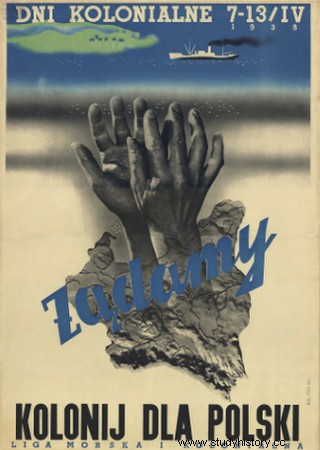
In the interwar period, a very fashionable slogan was to demand a colony for Poland. One of the main objects of our colonial aspirations was Madagascar.
They don't want to give us Madagascar, we'll buy it
Polish interest in Madagascar - as noted in the work "Colonial discourse in the Second Republic of Poland" by M.A. Kowalski - it was going back to the 1920s. However, the whole thing turned red in the second half of the 1930s.
The increased fascination with the potential colony was closely related to the attempts to solve the "Jewish question". In short, Madagascar was to become a place where Polish Orthodox Jews could emigrate.
In 1937, even a mixed Polish-Jewish commission headed by Major Mieczysław Lepecki left for Madagascar. The effects of her work were not optimistic. It turned out that the island has an unfavorable climate, and to make matters worse, the land is not fertile, which effectively eliminated the chances of mass agricultural emigration.
It did not matter much, however, as the French authorities, which initially showed some interest in the subject - under public pressure - withdrew from the entire project so quickly. Then the war broke out, which closed the question of Polish colonial aspirations once and for all.
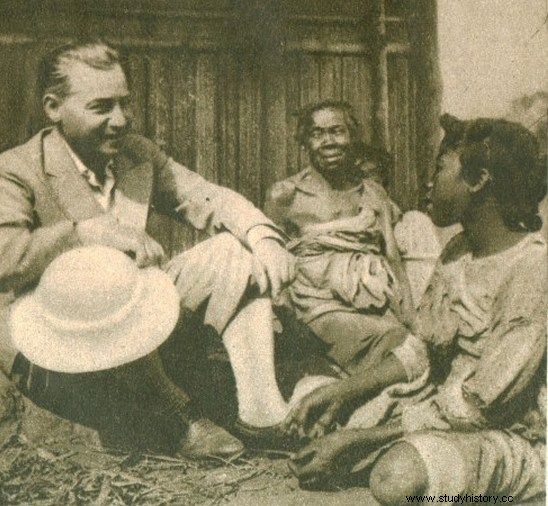
In 1937, a commission went to Madagascar to check the possibilities of colonizing the island. In the photo, its manager, Maj. Mieczysław Lepecki, is talking with Malagasy people.
So many facts. In an alternative version of our story by Ziemowit Szczerek, the Poles - with the help of the French and the English - are defeating Nazi Germany. The Second Polish Republic becomes a real superpower and foreign loans are flowing into our country in a wide stream. It is for them that in the 1940s we buy our dream Madagascar from France. And how do we get out of it? You guessed it. Of course, like Zabłocki on soap.
Bad even worse beginnings

There were problems right at the start. Madagascar was basically supposed to be a place of emigration for Jews, only that they definitely preferred to go to Palestine or the USA. Therefore gros future colonists are poor as church mice peasants from the Borderlands, who were inclined to seek a better life anywhere, as long as it was not as dramatic as where they came from .
However, in the former French colony - contrary to what was announced by the propaganda of the Maritime and Colonial League - neither wealth nor peace awaited them. On the contrary!
According to Ziemowit Szczerek, it would not take long for the settlers to show the first signs of discontent, which would quickly turn into an open rebellion. Borderland peasants, unaccustomed to the harsh climate, would fall en masse with tropical diseases, while barren land would not provide the income it was hoped for.
Of course, hunger did not threaten the colonists for the time being, because Poland had to take care of its prestige and food would be delivered to the island. However, taking into account the history of Poles in Liberia or Angola, one can boldly risk a statement that, apart from a few exceptions, most of the colonists would be happy to return to their homeland.
To make matters worse, after information about the conditions in which the settlers must live reached the country, it would be difficult to find new people willing to emigrate.
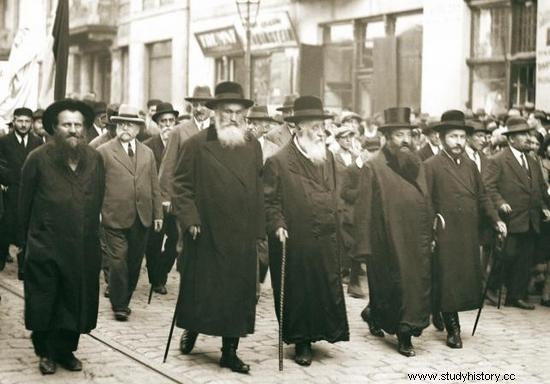
According to the theories promoted by some circles, during the Second Polish Republic, Madagascar was supposed to be an ideal place to send Polish Jews.
The problems of the disappointed peasants are one thing, but an even greater worry for the Polish authorities in Warsaw would be the enormous losses that the illusion of a "colonial power" would have to bear. The hopes for huge profits from the so-called colonial goods and minerals mined on the island.
This article has more than one page. Please select another one below to continue reading.Attention! You are not on the first page of the article. If you want to read from the beginning click here.
It would be difficult to find buyers for the former. The international market has long been divided among the big players. In the country, on the other hand, still a small percentage of citizens could afford such luxuries.
As for the natural resources, unfortunately Madagascar has few of them. Therefore, the income from trade would most likely not cover even the administration costs of the island. It must be remembered that together with the settlers, at least several thousand soldiers should be sent there. Someone had to keep order in the end.
Malagasy say enough
And there would be something, because - as Ziemowit Szczerek predicts in his book - Malagasy in 1947 (as in real history) sparked an anti-colonial uprising . Do not kid yourself. Our relationship with the indigenous peoples of the island would not be harmonious at all.
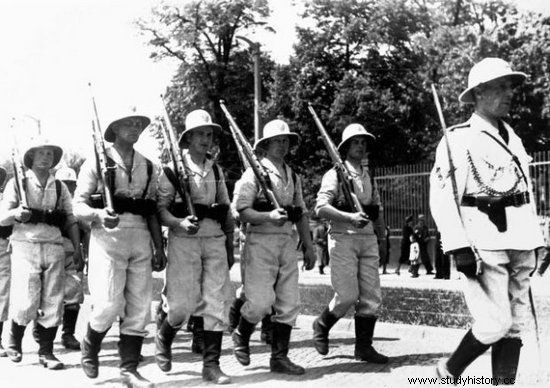
The desire to conquer a colony in the society of the Second Polish Republic was very strong. This was reflected in the colonial days organized by the Maritime and Colonial League. The photo shows members of the organization's Toruń branch during the colonial days in 1939.
We would probably treat them exactly like the French. After all, the example comes from above. The fights - as in reality - would last a year or maybe longer, and after their bloody suppression in Warsaw, a decision would have to be made what to do with the already unwanted colony.
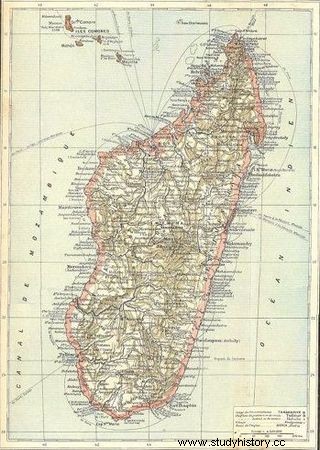
Here is Madagascar itself on the map from the period when it was a French colony.
The simplest solution would be to grant the Malagasy independence. However, neither France nor the United Kingdom would agree to this. It would be an extremely dangerous precedent. Equally important were the French colonists still living on the island, to whom Poland undertook to ensure security.
One may be tempted to say that Józef Beck would have heard in Paris Molière's you wanted it yourself, Grzegorz Dyndało . In other words, you dreamed of a colony, now you have it with all the benefits of your livestock.
Unable to break its alliance with France, Poland would probably struggle with an increasingly pressing problem for the next few years. In the end - as Z. Szczerek states - in 1951 Poland granted Madagascar independence controlled by Warsaw .
Of course, participation in the inspection was offered to Paris, which because of its citizens on the island - could not refuse . And this is how our colonial epic ended after just a few years.
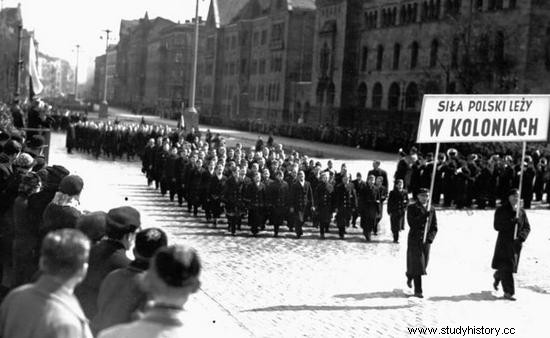
And colonial days again. This time Poznań in 1938.
This, of course, is only one of the possible variants of how Madagascar's fate as a Polish colony could have turned out. However, it is much more likely than the one drawn by the chief Polish cowboy. It's worth remembering that when someone starts whining again, it's a pity that we didn't have a colony in the interwar period ...
